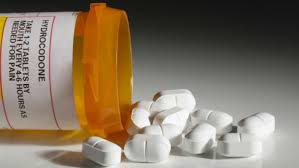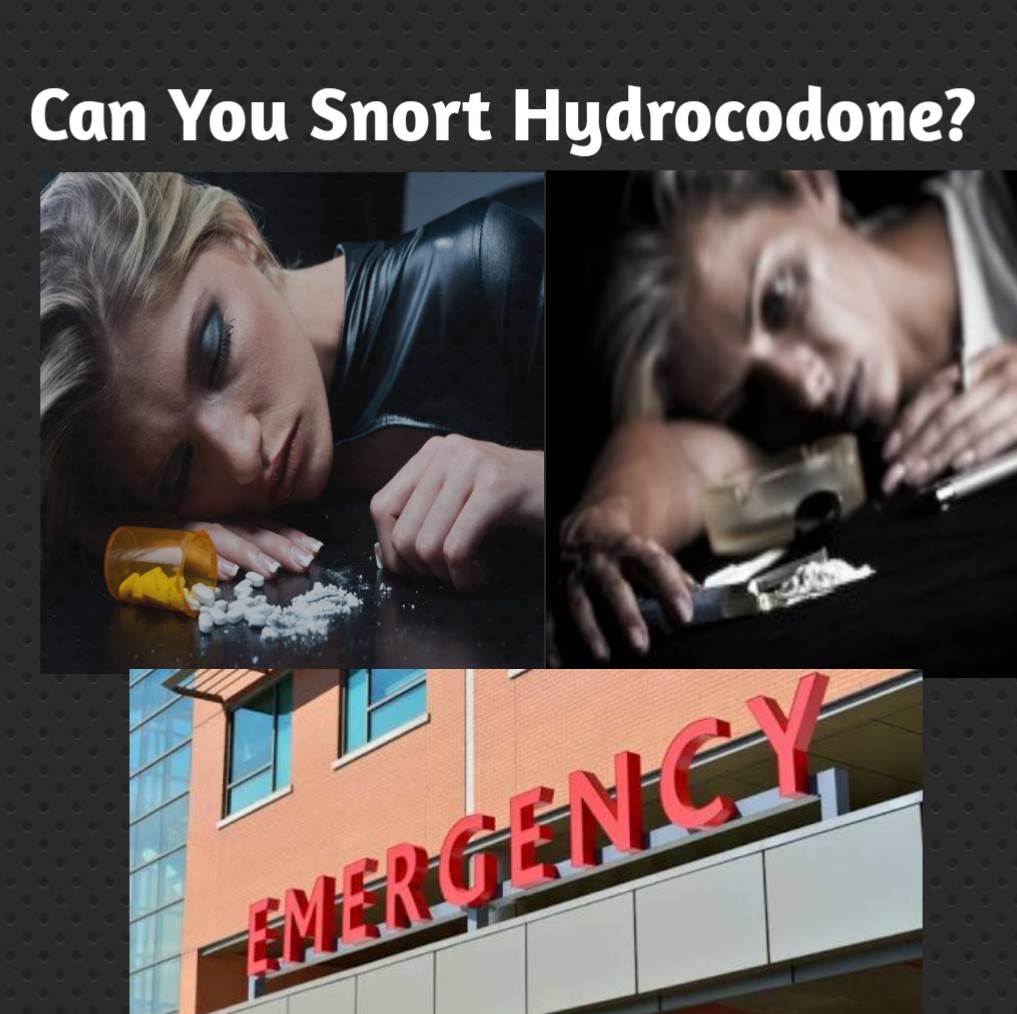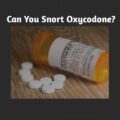Snorting Hydrocodone: Effects, Health Risks, Side Effects
What’s Hydrocodone?
Hydrocodone is a semisynthetic, moderately potent, orally available opioid synthesized from codeine, one of the opioid alkaloids found in the opium poppy. In combination with acetaminophen, it is widely used for the treatment of acute or chronic pain, and in combination with antihistamines or anticholinergics to treat cough.
What is Hydrocodone Snorting?
Snorting of hydrocodone involves grinding hydrocodone pills into powder by chopping the drug with a razor blade, on a hard surface or pounding with mortar and pestle. The drug is then divided on a flat surface into “lines,” then using a straw or rolled paper the hydrocodone powder is forcefully breathed up into the nasal cavity. Hydrocodone is also snorted in liquid form, it is very common to find recreational drug users snorting anti-tussive and cough suppressants containing hydrocodone.
Snorting is a common form of drug abuse in which people take a drug in powdered form and forcefully breathe it in, up into the nasal cavity. People snort because they achieve a faster onset; the drug is absorbed almost immediately into the bloodstream through the soft tissues in the nasal cavities where it can quickly travel to the brain, producing a sudden and intense feeling of euphoria commonly called a “hydrocodone high,” but not without severe consequences.
Hydrocodone snorting increases a person’s tolerance to the drug’s effects in relatively short order leading to the need for increasing amounts of the drug, and eventually the development of hydrocodone dependence. As tolerance builds with every line of hydrocodone snorted, the “high” decreases and causes the person to need more of the drug to experience the same effects as before. This dangerous pattern of use eventually leads to hydrocodone addiction.
The level of abuse of prescription opioids around the world has risen drastically in the past 15 years, and the two major culprits are hydrocodone and oxycodone which account for a whopping 75% of preferred drugs by people dependent on opioids. According to the National Institute on Drug Abuse, 18,000 died in the US from prescription opioid pain relievers in a single year. If you are addicted to hydrocodone or any other opioid seek help immediately.
Can you snort hydrocodone acetaminophen 5 325?
The combination prescription drug containing 5 mg of Hydrocodone and 325 mg Acetaminophen is Lortab. Hydrocodone is a narcotic, while acetaminophen is a mild painkiller. In combination, they belong to a class of drugs known as the opioid analgesics, which exert their action by blocking certain nerve cell receptors in the brain this action alters the way the body responds to pain. Smoking or snorting any drug including addictive drugs likes hydrocodone combinations is accompanied by several health risks. A study published by Baylor University Medical center on Hydrocodone snorting leading to hypersensitivity pneumonitis reported that, when the drug is snorted, there is a much greater risk of toxic effects, including hypersensitivity pneumonitis causing respiratory failure. Health risks associated with hydrocodone snorting include risk of sinus infections, HIV/AIDS and Hepatitis C due to damage to the blood vessels inside the nose, and sharing snorting equipment like bank notes or straws. Scott Gottlieb, M.D., FDA Commissioner, commented on the risks associated with the drug snorting emphasizing that there are very real consequences to snorting any powder, not to mention the societal dangers of promoting drug abuse.”SEE: Snorting Valium
What Are The Side Effects Of Hydrocodone Snorting?
The side effects of snorting hydrocodone include:
- Damage to the sensitive mucus membranes in the nose causes it to wear away and harden.
- Regular hydrocodone snorters tend to develop chronic runny nose and sinus infections.
- Diminished or compromised sense of smell.
- Snorting hydrocodone can lead to serious physical problems, addiction, and overdose.
- Damage to the upper respiratory system and conditions such as hypersensitivity pneumonitis.
- Reduced immune response due to constant infections, and hydrocodone.
- Snorting hydrocodone increases the risk of serious side effects, like liver damage, kidney damage from low blood pressure, coma, and death.
- The most frequent adverse reactions associated with hydrocodone include Lightheadedness, dizziness, sedation, nausea, vomiting, depressed respiratory function, drowsiness, constipation and spasm of the ureter which often lead to difficulty in urinating.
Treatment For Hydrocodone Snorting
The Substance Abuse and Mental Health Services Administration (SAMHSA) maintains a high-quality online treatment finder for a range of mental and behavioral conditions including hydrocodone addiction. The group also has a crisis helpline, which you can call when there is any issue related to addiction involving yourself, family members, or friends. The treatment involves entering a rehabilitation program that specializes in treating opioid abuse and committing to therapy sessions that typically last for three months. During this period, a medical professional will help you safely detox and reintegrated into the society to live a healthy and purposeful life.
SEE: What is K 56 pill?
Steps on How to Overcome Hydrocodone Addiction
If you are addicted to Percocet or any other opioid seek help immediately.
- Beat stress
- Distract yourself and think about Change
- Visualize success
- Keep a journal
- Talk to a professional and remember that No treatment works for everyone. CLICK HERE TO DOWNLOAD: How to Overcome Addiction PDF









1 Comment